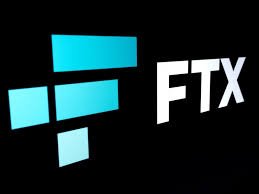

New CPA Paths Emerge as States Try to Stem Accountant Shortage
The accounting industry is grappling with a growing workforce shortage, prompting states and professional organizations to rethink traditional pathways to becoming a Certified Public Accountant (CPA). In an effort to attract more candidates to the profession, several states are considering allowing aspiring accountants to bypass a fifth year of education—a long-standing requirement that many see as a significant barrier to entry.

FTX Bankruptcy Judge Approves $14 Billion Payback Plan for Creditors
In a significant development for the crypto industry, a Delaware bankruptcy court has approved a plan for FTX to return more than $14 billion worth of assets to its creditors. The embattled cryptocurrency exchange, which filed for bankruptcy protection in November 2022, previously estimated that it owed creditors around $11.2 billion.

Legal Implications of SEC Jurisdiction Over Secondary-Market Sales of Network Tokens
The ongoing dispute between Foris DAX Inc. ("Crypto.com") and the Securities and Exchange Commission (SEC) represents a pivotal moment in the regulatory landscape for digital assets. Crypto.com is challenging the SEC's assertion of jurisdiction over secondary-market sales of various network tokens, which are typically used to access or interact with blockchain networks.

SEC Adopts Rules Modifying Minimum Pricing Increments, Access Fee Caps, and Order Transparency
On September 18, 2024, the SEC unanimously adopted new rules modifying key aspects of the National Market System (NMS). These amendments affect minimum pricing increments, access fee caps, and order transparency for NMS stocks. The changes, effective in 2025 and 2026, aim to reduce trading costs, enhance market transparency, and better align pricing structures across different stock categories. Notably, the updates will influence trading strategies, compliance measures, and market behaviors, potentially triggering challenges from stock exchanges and other market participants.

October 2024 Regulatory Update
This update delves into recent shifts at the SEC, including leadership changes, policy updates, and enforcement actions that highlight the agency’s ongoing focus on compliance and investor protection. Keith Cassidy has taken over as Acting Director of the Division of Examinations, while Gurbir S. Grewal, Director of the Enforcement Division, has announced his departure.

Securities Enforcement Forum Central 2024 Recap: SEC Enforcement Trends and Strategic Priorities
The Securities Enforcement Forum Central 2024 delivered high-impact discussions on the future of SEC enforcement. With hundreds of top industry professionals gathered at the Ritz-Carlton Chicago, attendees gained exclusive insights into the SEC’s evolving priorities and key challenges—just days before the agency’s fiscal year-end. Highlights included a keynote with the SEC’s Chicago Regional Director, Tina Diamantopoulos, and panels featuring current and former senior SEC officials. Topics ranged from the implications of SEC v. Jarkesy and increased scrutiny on crypto assets, to insider trading strategies and cooperation credit standards.

Avoiding Fundraising Pitfalls: A Securities Lawyer’s Guide for Startups Raising Capital
For many entrepreneurs, raising capital is a necessary step toward building and scaling a successful business. However, raising capital isn’t just about convincing investors of your company’s potential—it’s also about navigating a complex web of federal and state securities laws. Failing to adhere to these regulations can result in serious consequences, ranging from penalties and rescission rights for investors to long-term barriers that impede your ability to raise funds down the road.

Interagency Statement on Supervisory Practices for Financial Institutions Affected by Hurricane Helene
In light of the widespread damage and disruptions caused by Hurricane Helene, the Federal Deposit Insurance Corporation (FDIC), the Federal Reserve Board (FRB), the National Credit Union Administration (NCUA), the Office of the Comptroller of the Currency (OCC), and state financial regulators have issued an interagency statement to provide regulatory guidance and relief to financial institutions operating in the impacted regions.

From Likes to Lawsuits: FINRA Flags Compliance Pitfalls in Influencer Marketing and Crypto Promotions
With social media influencers dominating the advertising space and crypto assets all the rage, it's no surprise that financial firms are exploring new ways to reach clients and promote products. However, the recent insights from FINRA’s Advertising Regulatory Conference highlight a cautionary tale for firms rushing to leverage these trendy marketing tactics: proceed with caution, and bring your compliance team along for the ride.

SEC Announces Departure of Enforcement Director Gurbir S. Grewal; Sanjay Wadhwa Named Acting Director, Sam Waldon Named Acting Deputy Director
On October 2, 2024, the Securities and Exchange Commission (SEC) announced the departure of Gurbir S. Grewal, Director of the Division of Enforcement, effective October 11, 2024. Following his departure, Sanjay Wadhwa, the current Deputy Director of the Division, will step into the role of Acting Director. Meanwhile, Sam Waldon, Chief Counsel of the Division, will assume the position of Acting Deputy Director.

SEC Charges Keurig Over Misleading Recyclability Claims of K-Cup Pods
On September 10, 2024, the SEC charged Keurig Dr Pepper Inc. (Keurig) with making misleading statements regarding the recyclability of its widely used K-Cup coffee pods. The action is part of the SEC’s ongoing initiative to combat “greenwashing”—the practice of making exaggerated or unsubstantiated claims about a company’s environmental practices or products.

SEC Enforcement Sweep Targets Companies and Insiders for Late Filings under Section 16 and 13(d), (g), and (f)
The SEC’s fiscal year is winding down, and once again, we are seeing what is becoming a predictable, if not formalized, year-end tradition: a broad Enforcement sweep targeting companies and insiders for failing to meet timely filing requirements under Sections 16(a), 13(d), 13(g), and 13(f) of the Exchange Act. This year, 23 respondents—both corporate entities and individuals—were charged for violations stemming from late short-swing trading reports (Forms 3, 4, and 5) and beneficial ownership reports (Schedules 13D and G). Penalties ranged from $10,000 to $750,000, totaling more than $3.8 million. The SEC’s use of data analytics to identify these reporting failures continues to demonstrate the agency’s commitment to leveraging technology to enforce even technical compliance obligations.

New FinCEN AML Rule Brings Heightened Scrutiny to Registered and Exempt Reporting Investment Advisers
On August 28, 2024, the Financial Crimes Enforcement Network (FinCEN) finalized a rule that imposes new Anti-Money Laundering (AML) and Countering the Financing of Terrorism (CFT) program requirements on registered investment advisers (RIAs) and exempt reporting advisers (ERAs). For the first time, these advisers will be formally recognized as “financial institutions” under the Bank Secrecy Act (BSA), and thus subject to its AML/CFT regulations. The new rule will go into effect on January 1, 2026, signaling a significant shift for both RIAs and ERAs, who will need to implement comprehensive compliance programs to meet these requirements.

Untangling the SEC's Web: Regulatory Challenges Facing Crypto and Digital Assets
Under the leadership of Chairman Gary Gensler, the Securities and Exchange Commission (SEC) has adopted an approach to digital assets that some have described as "enforce first, make rules never." This strategy, while potentially effective in areas where clear guidance exists, has left digital asset market participants in the United States facing significant regulatory uncertainty. Without clear rules, the SEC’s aggressive enforcement tactics have had the effect of stifling innovation and driving businesses overseas. This article explores the key issues in the SEC’s current stance on digital assets and the need for a more thoughtful and predictable regulatory framework.

Equity Crowdfunding: A Comparison of Reg A, Reg CF, and Reg D
In the ever-evolving landscape of modern capital formation, the avenues available to entrepreneurs are both myriad and complex. Navigating the regulatory intricacies of Regulation A (Reg A), Regulation Crowdfunding (Reg CF), and Regulation D (Reg D) transcends mere compliance; it is a strategic imperative that can profoundly shape the trajectory of a business. Each regulatory framework not only delineates specific parameters regarding investor eligibility and funding caps but also carries distinct implications for ongoing disclosure and market engagement.

Broker-Dealers vs. Unregistered Finders in Capital Raising
Determining whether an intermediary operates as a finder or an unregistered broker-dealer is a nuanced and fact-specific inquiry that can present significant challenges. For unwary entrepreneurs, corporate executives, and equity fund sponsors, the stakes are high; engaging a third party that inadvertently crosses the line into broker-dealer territory can result in serious regulatory repercussions.
